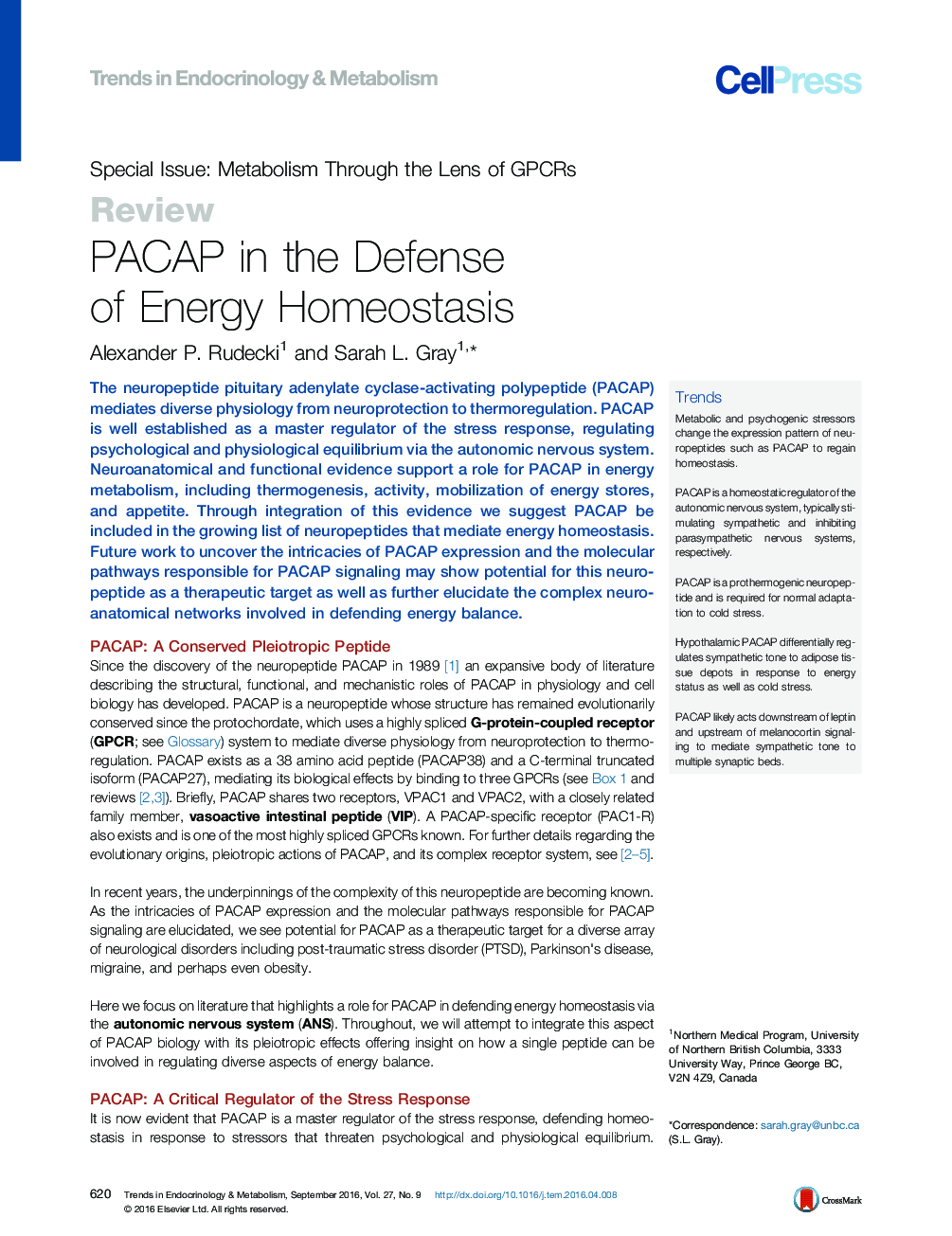| Article ID | Journal | Published Year | Pages | File Type |
|---|---|---|---|---|
| 2810054 | Trends in Endocrinology & Metabolism | 2016 | 13 Pages |
The neuropeptide pituitary adenylate cyclase-activating polypeptide (PACAP) mediates diverse physiology from neuroprotection to thermoregulation. PACAP is well established as a master regulator of the stress response, regulating psychological and physiological equilibrium via the autonomic nervous system. Neuroanatomical and functional evidence support a role for PACAP in energy metabolism, including thermogenesis, activity, mobilization of energy stores, and appetite. Through integration of this evidence we suggest PACAP be included in the growing list of neuropeptides that mediate energy homeostasis. Future work to uncover the intricacies of PACAP expression and the molecular pathways responsible for PACAP signaling may show potential for this neuropeptide as a therapeutic target as well as further elucidate the complex neuroanatomical networks involved in defending energy balance.
TrendsMetabolic and psychogenic stressors change the expression pattern of neuropeptides such as PACAP to regain homeostasis.PACAP is a homeostatic regulator of the autonomic nervous system, typically stimulating sympathetic and inhibiting parasympathetic nervous systems, respectively.PACAP is a prothermogenic neuropeptide and is required for normal adaptation to cold stress.Hypothalamic PACAP differentially regulates sympathetic tone to adipose tissue depots in response to energy status as well as cold stress.PACAP likely acts downstream of leptin and upstream of melanocortin signaling to mediate sympathetic tone to multiple synaptic beds.
